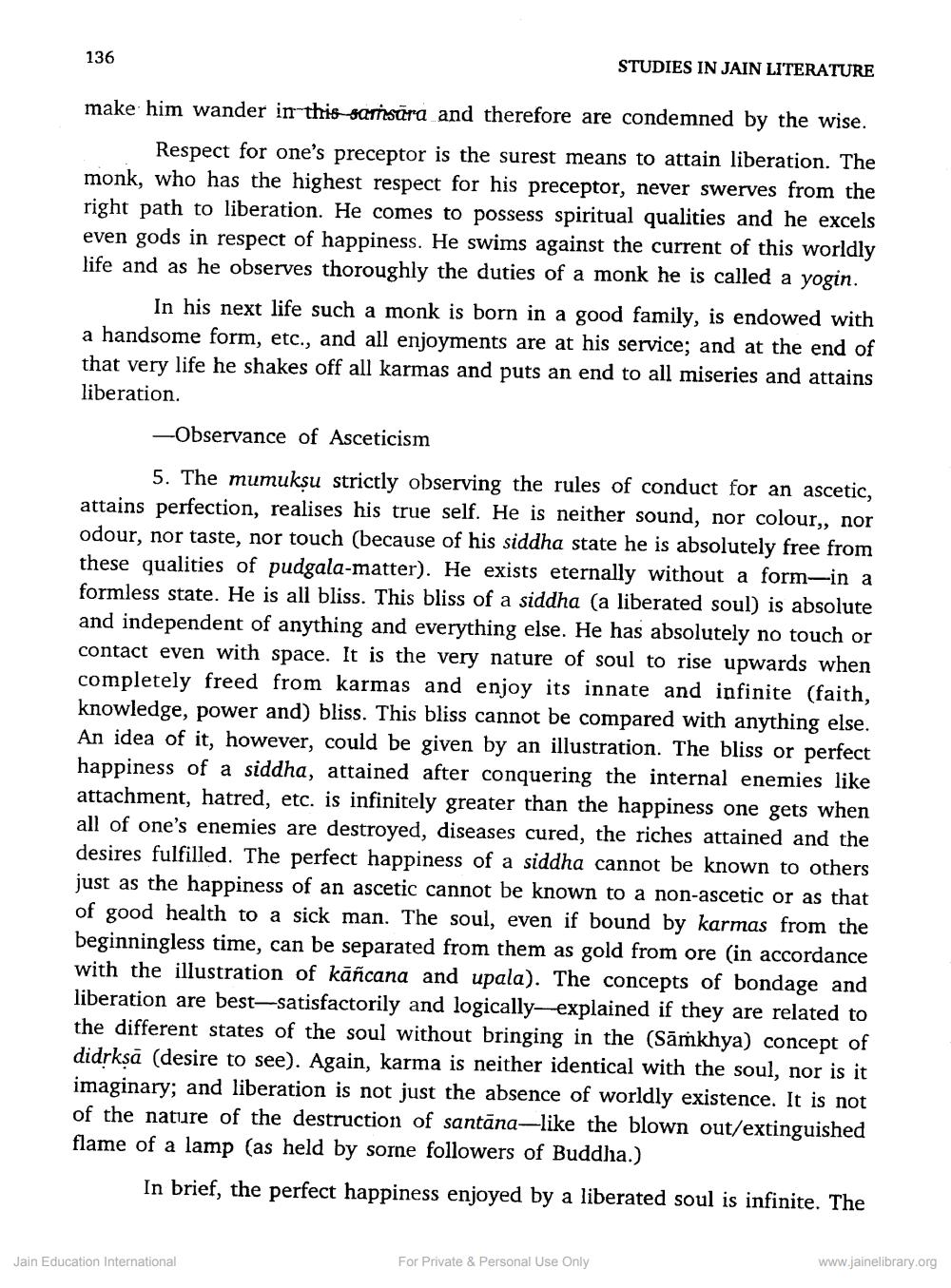________________ 136 STUDIES IN JAIN LITERATURE make him wander in this sarisara and therefore are condemned by the wise. Respect for one's preceptor is the surest means to attain liberation. The monk, who has the highest respect for his preceptor, never swerves from the right path to liberation. He comes to possess spiritual qualities and he excels even gods in respect of happiness. He swims against the current of this worldly life and as he observes thoroughly the duties of a monk he is called a yogin. In his next life such a monk is born in a good family, is endowed with a handsome form, etc., and all enjoyments are at his service; and at the end of that very life he shakes off all karmas and puts an end to all miseries and attains liberation. -Observance of Asceticism 5. The mumuksu strictly observing the rules of conduct for an ascetic, attains perfection, realises his true self. He is neither sound, nor colour,, nor odour, nor taste, nor touch (because of his siddha state he is absolutely free from these qualities of pudgala-matter). He exists eternally without a form-in a formless state. He is all bliss. This bliss of a siddha (a liberated soul) is absolute and independent of anything and everything else. He has absolutely no touch or contact even with space. It is the very nature of soul to rise upwards when completely freed from karmas and enjoy its innate and infinite (faith, knowledge, power and) bliss. This bliss cannot be compared with anything else. An idea of it, however, could be given by an illustration. The bliss or perfect happiness of a siddha, attained after conquering the internal enemies like attachment, hatred, etc. is infinitely greater than the happiness one gets when all of one's enemies are destroyed, diseases cured, the riches attained and the desires fulfilled. The perfect happiness of a siddha cannot be known to others just as the happiness of an ascetic cannot be known to a non-ascetic or as that of good health to a sick man. The soul, even if bound by karmas from the beginningless time, can be separated from them as gold from ore in accordance with the illustration of kancana and upala). The concepts of bondage and liberation are best--satisfactorily and logically-explained if they are related to the different states of the soul without bringing in the (Samkhya) concept of didrksa (desire to see). Again, karma is neither identical with the soul, nor is it imaginary; and liberation is not just the absence of worldly existence. It is not of the nature of the destruction of santana--like the blown out/extinguished flame of a lamp (as held by some followers of Buddha.) In brief, the perfect happiness enjoyed by a liberated soul is infinite. The www.jainelibrary.org For Private & Personal Use Only Jain Education International




